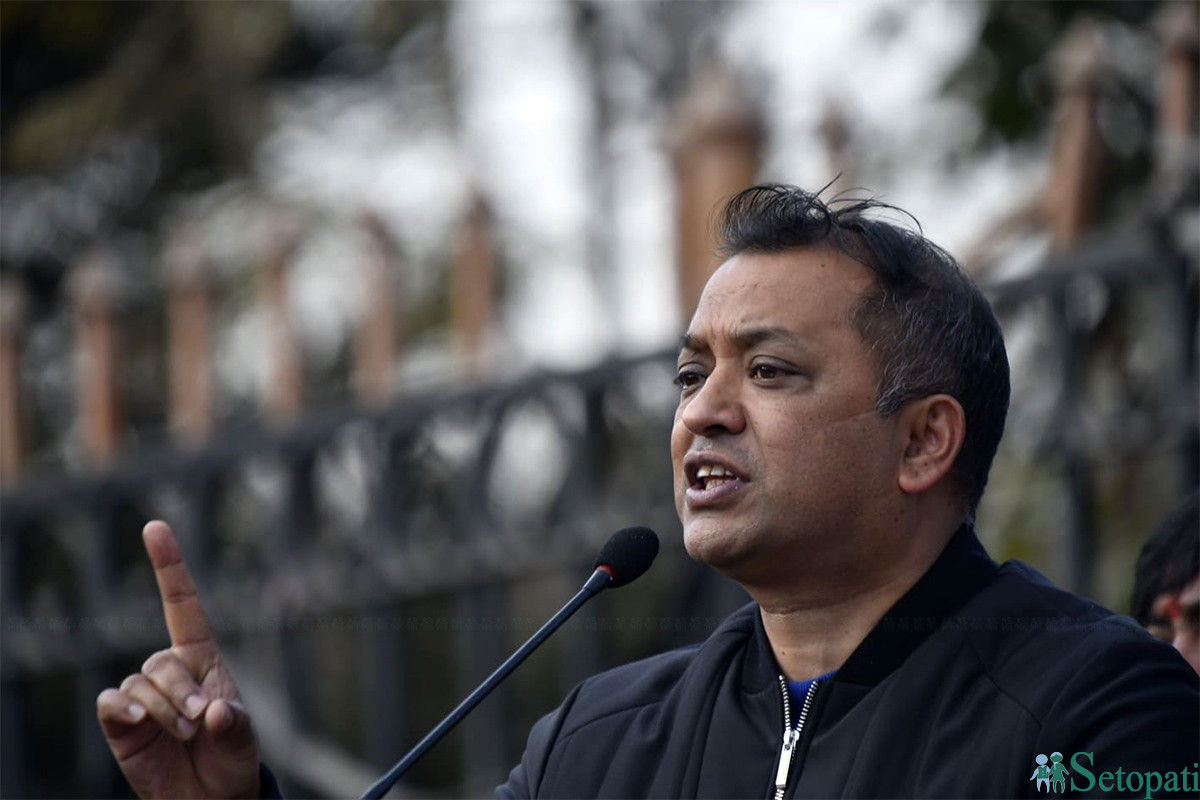Nepali Congress (NC) General Secretary Gagan Thapa has defended President Bidya Devi Bhandari’s sending back of the Citizenship Bill.
Lawmakers of ruling coalition have been criticizing President Bhandari for sending back the bill sent to her for authentication after being passed by both the House of Representatives (HoR) and the National Assembly. But Thapa has pointed that the president has constitutional right to send back any bill sent for authentication back to the House for reconsideration, and stressed that there is no need to be angry about that.
“President has exercised her rights. We have yet to study that,” Thapa said addressing a training program of NC’s elected local representatives on Monday.
Spokesperson at the President's Office Sagar Acharya issuing a statement on Sunday stated that President Bhandari sent back the bill to the HoR for reconsideration as per Article 113(3) of the Constitution.
"Except in the case of a Finance Bill, if the President is satisfied that reconsideration is necessary on a bill, the Bill may be sent back to the House where it originated with necessary information within 15 days of receiving the Bill," 113(3) of the Constitution says about exception to mandatory certification of bills sent to the president.
"The Bill presented to the President for certification according to this Article, shall be certified within 15 days, and both the Houses shall be informed about that as early as possible," 113(2) of the Constitution says about authentication of bills.
President Bhandari sent back the Citizenship Bill two days before expiry of the 15-day deadline.
President Bhandari mainly raised two issues while sending the bill back, according to a Sheetal Niwas source. She mentioned that the bill is silent about the provision of naturalized citizenship through marriage as per Article 11(6) of the Constitution.
"If a foreign woman married to a Nepali citizen so wishes, she may acquire naturalized citizenship of Nepal as provided for in a Federal law," states Article 11(6) of the Constitution. President Bhandari has pointed that the Constitution clearly says federal law but the bill passed by the federal parliament does not have that provision.
She also raised question about the provision requiring self-declaration by woman to provide citizenship to her children.
She also drew the House's attention to other issues but has mainly asked the House to reconsider the two issues, according to the source.
The bill does not propose any restrictions on foreigners marrying Nepali citizens while acquiring naturalized citizenship. The main opposition CPN-UML, to which Bhandari was affiliated before becoming president, has been protesting removal of the provision in the report submitted by the State Affairs and Good Governance Committee of the HoR that required foreigners marrying Nepali citizens to wait for seven years to get naturalized citizenship.
The bill passed by the federal parliament also has a provision to grant citizenship by descent to the children of those who received citizenship by birth through a one-time arrangement after the Janaandolan II in 2006.
Citizenship by birth was granted to persons born in Nepal before mid-April 1990, and having permanent domicile and been continuously resident in Nepal throughout their life through the one-time arrangement.
The passed bill also allows citizenship to a person only through the name of mother but has put four conditions for that. The child should be born in Nepal, should be residing in Nepal, father should be unidentified and the person should make self-declaration that the father has not been identified for that.
The person taking the citizenship certificate can choose to take the surname and address of either the father or mother. The bill has also paved the way for non-resident citizenship to anyone living outside the SAARC countries if there is proof that the person's father/mother or grandfather/grandmother is/was a Nepali citizen.
President Bhandari earlier had authenticated the ordinance, sent by the then prime minister KP Sharma Oli after dissolving the House, that included similar provisions.

